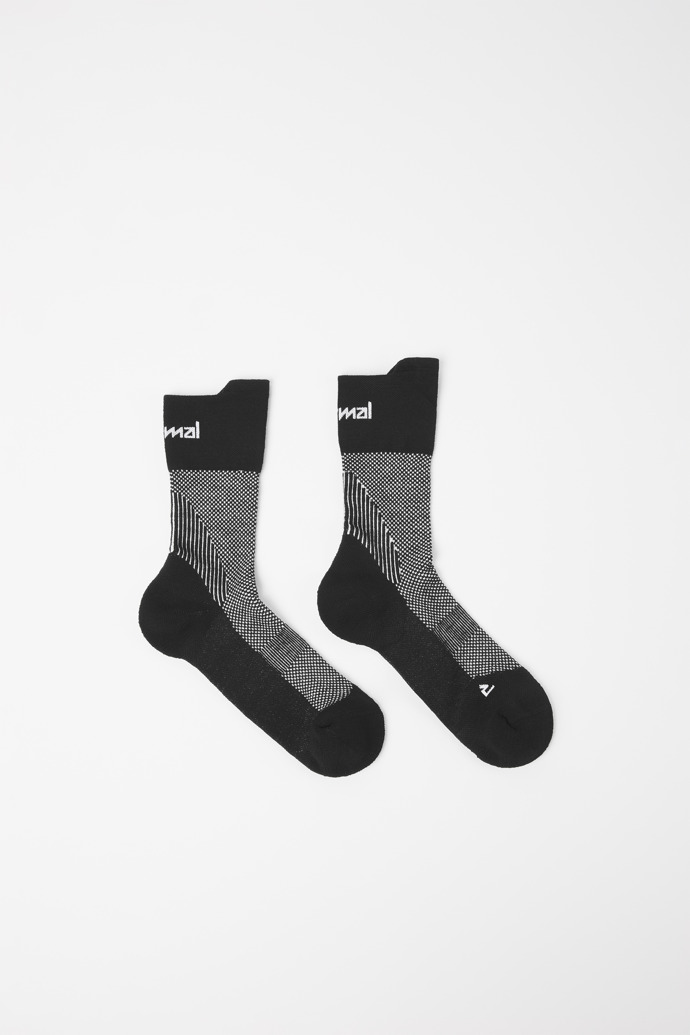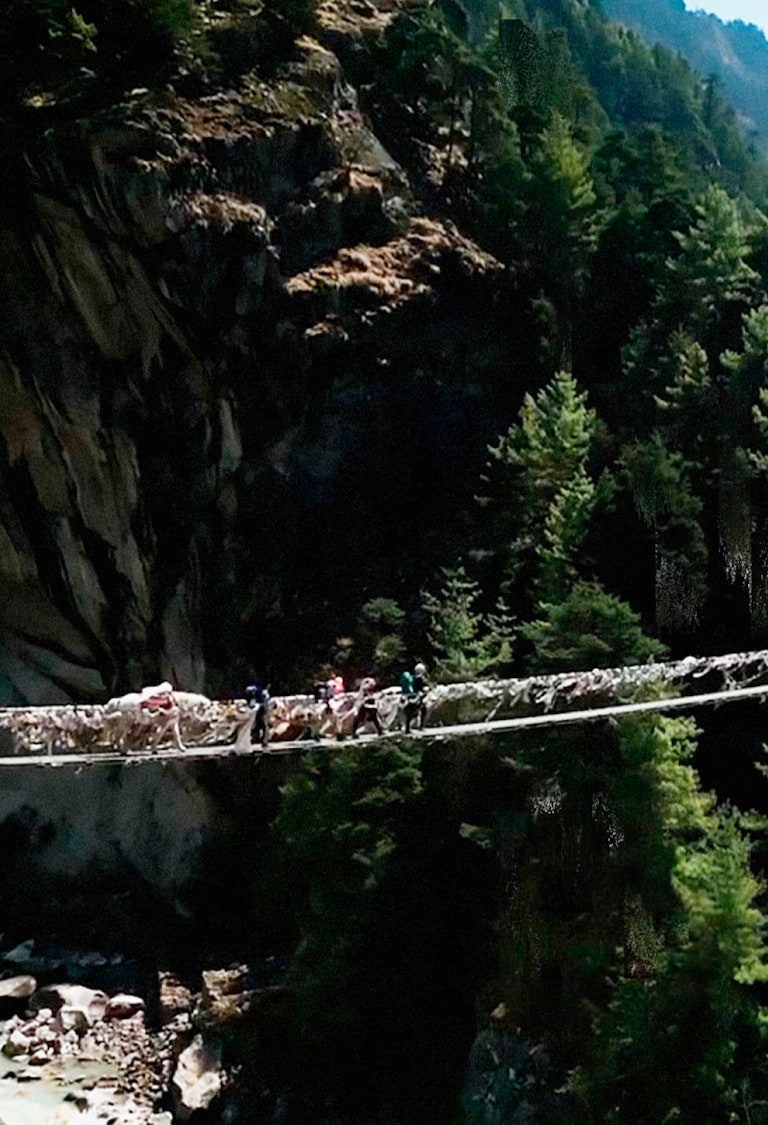
Stories / May 2023
A NNormal adventure in the Himalayas
Family above all
Week 2
Trekking from Namche to Pheriche,
we climb to over 4,350 m altitude.
04. May 2023 / Pheriche, Nepal
After ten days exploring Namche Bazaar and its surroundings, it is time to head to Pheriche, another village in the Khumbu region of eastern Nepal. Namche has been our home for more than a week and this has given us the opportunity to experience the Himalayas from a unique point of view, that of a family with a passion for the outdoors and high mountain life.
Namche, the perfect place to acclimatise
Namche Bazaar is the gateway to Sagarmatha National Park and the most populated village in the area. There are currently about 5,000 people living here, but more than 40,000 tourists pass through Namche every year. One of the most impressive things about Namche Bazaar is the fact that, as soon as you arrive, you can already see the high mountains that will surround you throughout your journey, some of which are over 6,000 metres high.
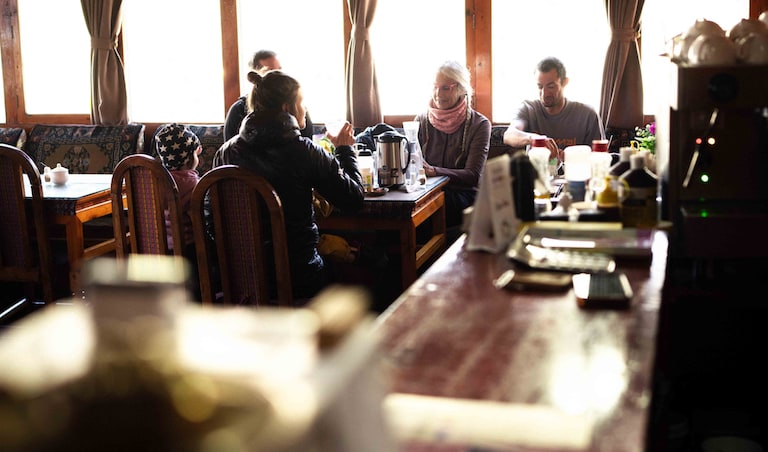
Panorama Lodge, Namche Bazaar.
Emelie Forsberg already knew the village of Namche from previous trips, but she had never had the opportunity to enjoy it with her two daughters. She already had some friends and acquaintances there and it was a pleasure to meet them again. Moreover, in the village of Namche we find the only school in the area and this means that there are many children playing in the streets. When they see us they welcome us with a smile, and they are always ready to interact and play with us.
During these days, Emelie and her family have been able to have fun, go for walks and discover places full of character: markets, schools, farms and much more.
In fact, the local gardens and farms have stand out Emelie’s attention, as many of the vegetables grown here are similar or the same as those she grows in her garden in the Romsdal Valley, Norway. This simple similarity has made us think about how many connections exist between human beings despite living thousands of kilometres apart and in such different areas of the planet.
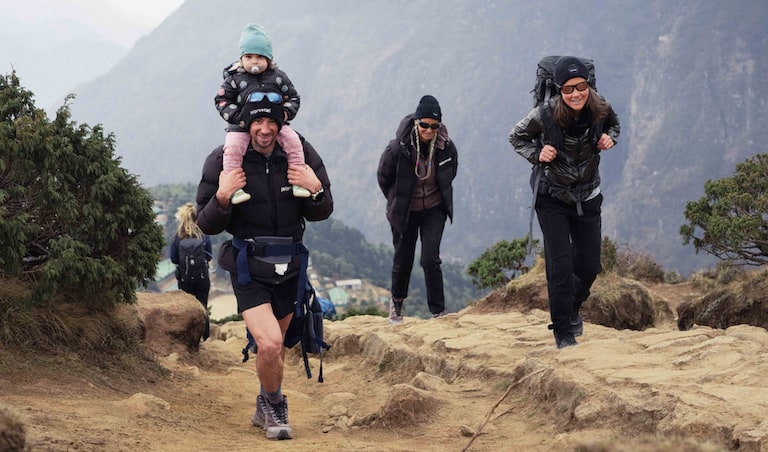
Family going up to Pheriche
“The landscape in Namche is truly breathtaking. The altitude of these mountains makes you have respect for them but at the same time you want to climb to the top.”
Emelie Forsberg
Waste management in Namche
Another aspect that has caught Emelie and Kilian’s attention compared to the last time they were here is waste management. The high influx of tourists in Namche has caused the locals to face a serious problem, that of dirty streets and full of garbage. For this reason, the village has promoted initiatives that are helping to deal with it.
The Carry Me Back project has been created by the Bally Peak Outlook Foundation with the aim of encouraging every person who visits the area to take 1 kg of waste in a bag that the foundation provides. With this gesture, tourists who visit Namche contribute to collecting 80,000 kg of waste from Sagarmatha National Park. This foundation has also promoted other initiatives related to waste management and we are looking forward to learning more about them so we can contribute to the cause.
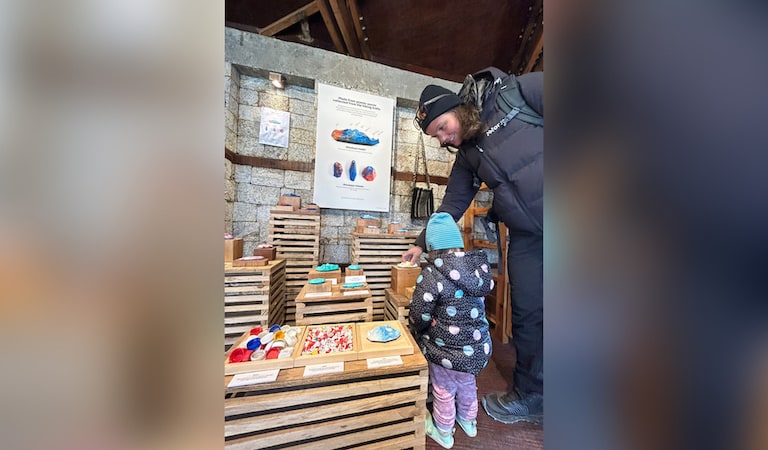
Sagarmatha Next, Himalayan Museum and Sustainable Park, Namche Bazaar.
We leave Namche behind to go up to Pheriche
Tomorrow we will move to Pheriche with Emelie, Kilian, and the whole family. We will embark on a 20-kilometer trekking trip with a 1,400-meter positive elevation that will take us about 7 hours. We will also be accompanied by a Sherpa and his horse, who will carry Kilian and Emelie's eldest daughter, Maj, on his back. Ylva-Li, the youngest daughter, on the other hand, will have to be carried in a baby carrier on her parent's back.
Pheriche is very different from Namche: it is at a much higher altitude, has far fewer services, and there are far fewer tourists. In fact, the population is less than 30 people. This place is new for Emelie and she is really excited to explore it.
To arrive at Pheriche, we will face a rocky path where we will have to deal with the altitude change. Once there, we will continue acclimatizing ourselves to be able to coexist with the altitude and make some trips around the area. This time, we will be more warmly dressed and much more alone than we were used to in Namche. Pheriche will be our base camp and we hope to establish a great relationship with the people who live there. After all, nothing would be the same without them.
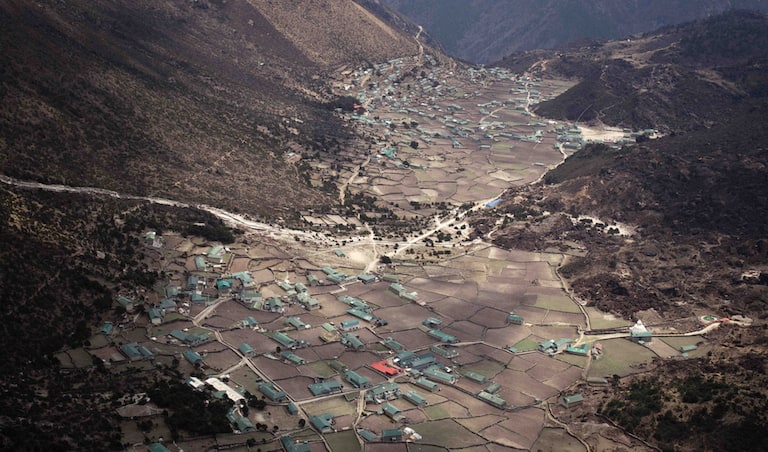
View of Namche Bazaar.
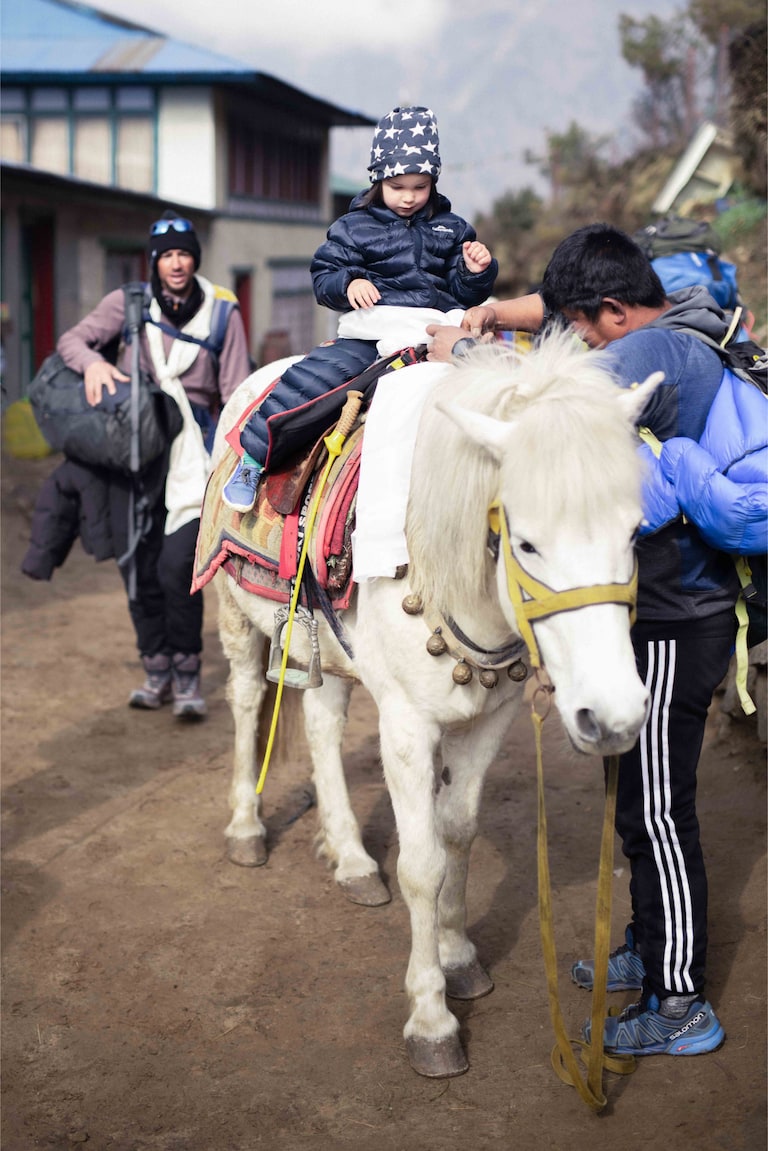
1/6
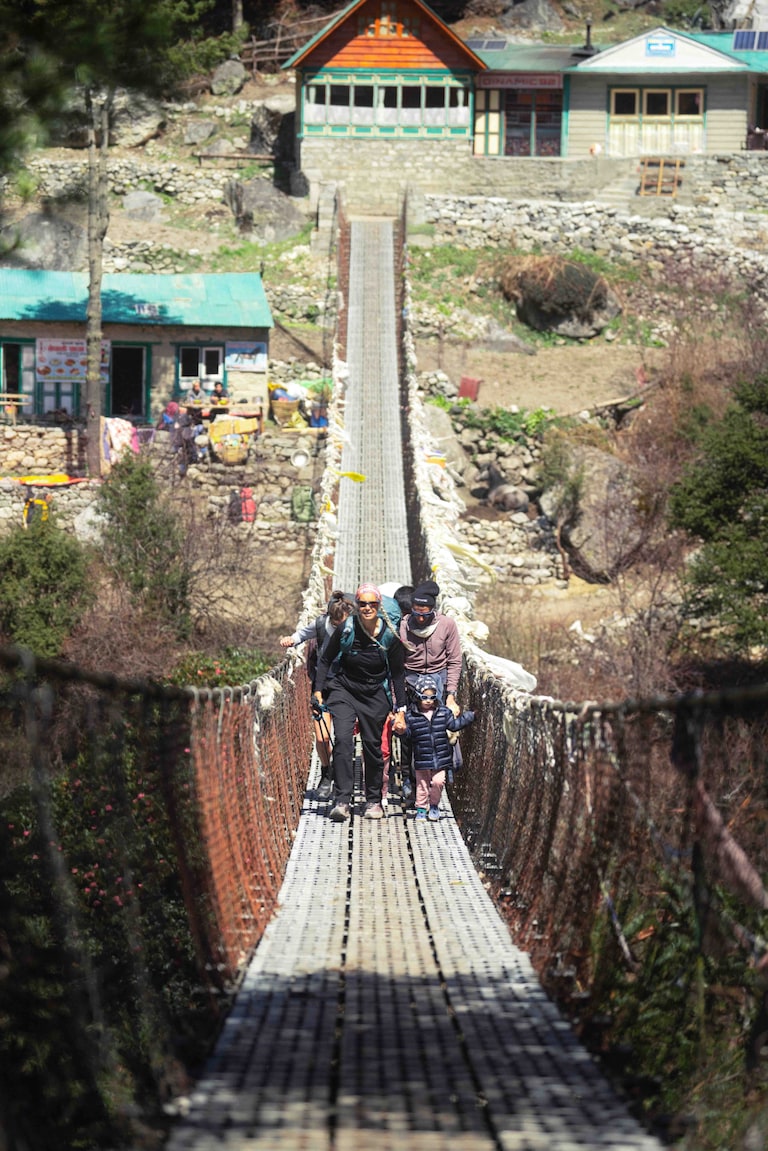
2/6
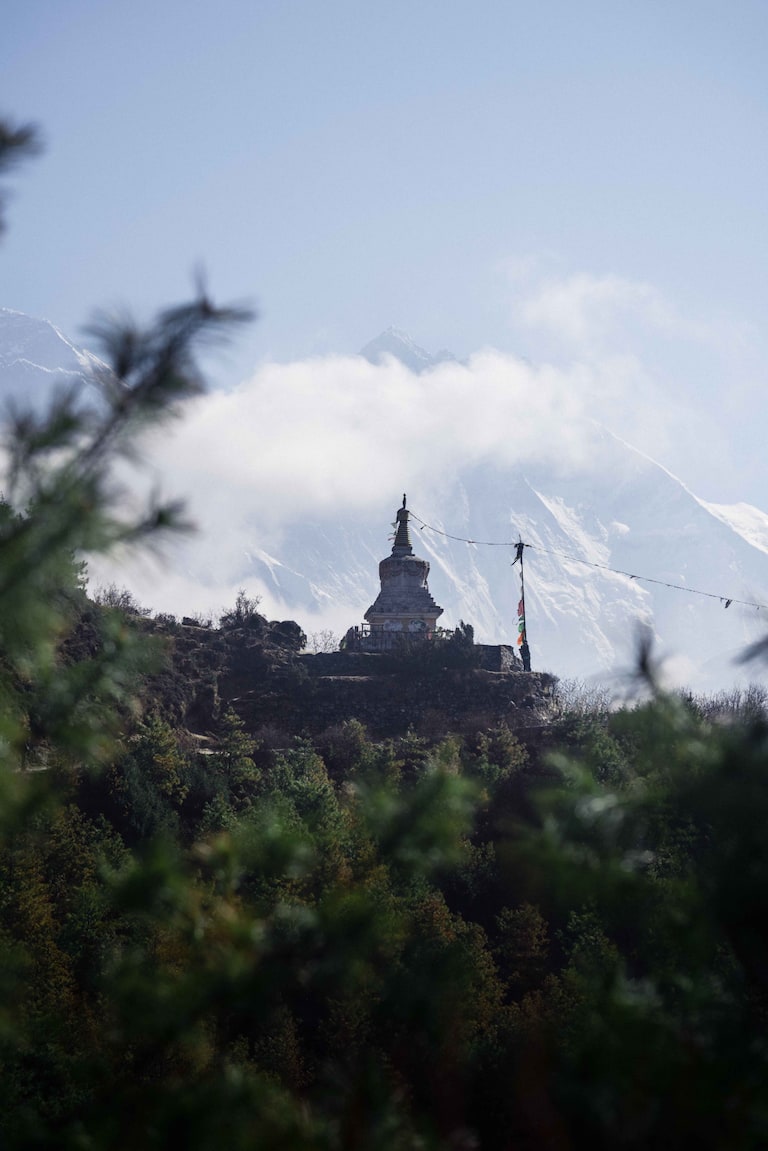
3/6
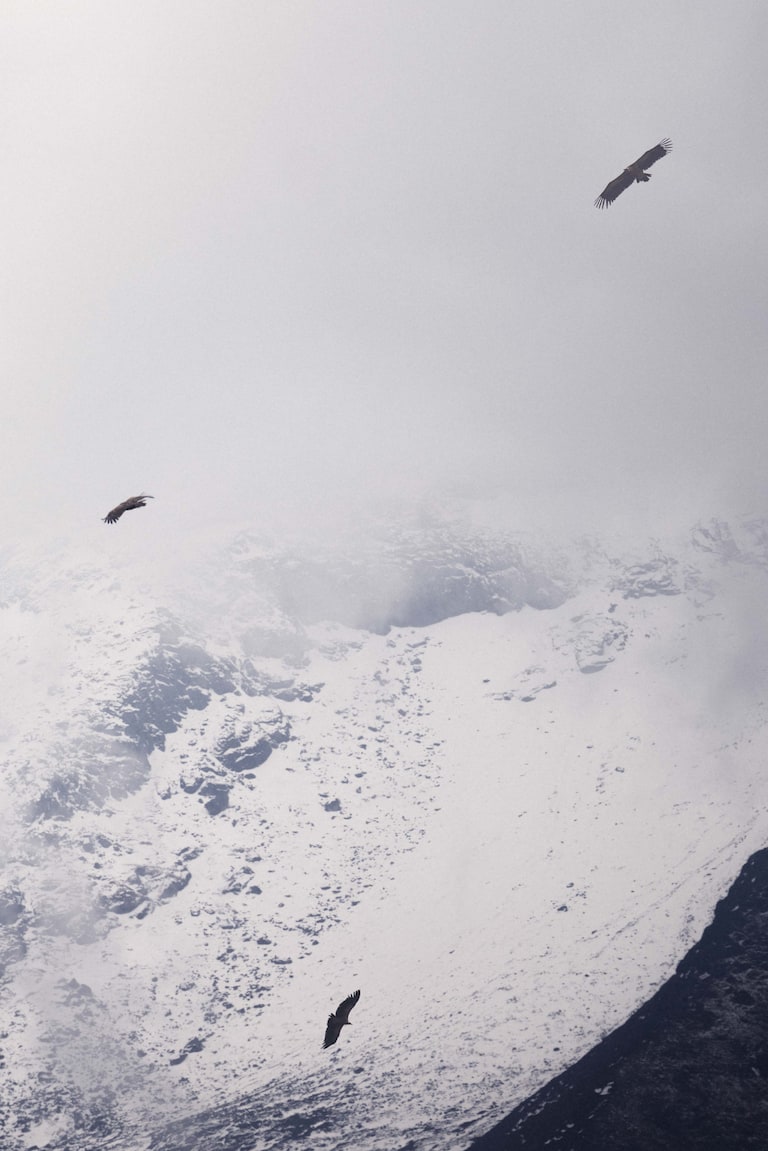
4/6
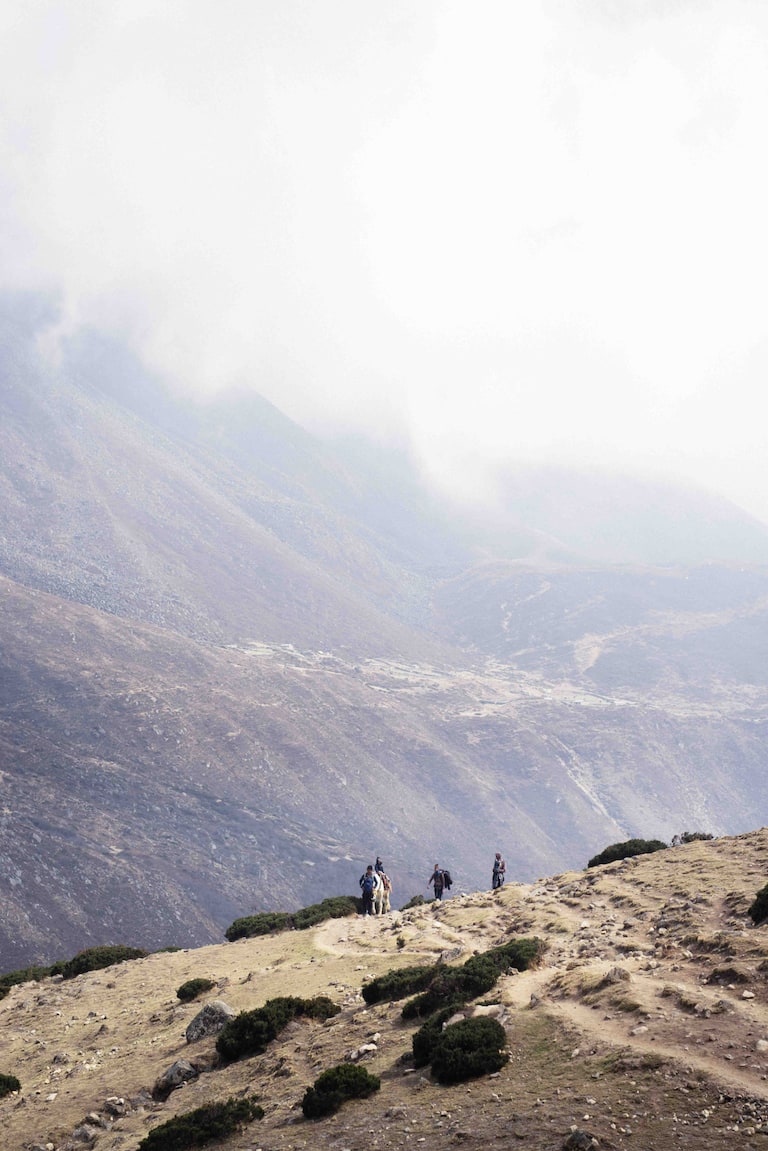
5/6
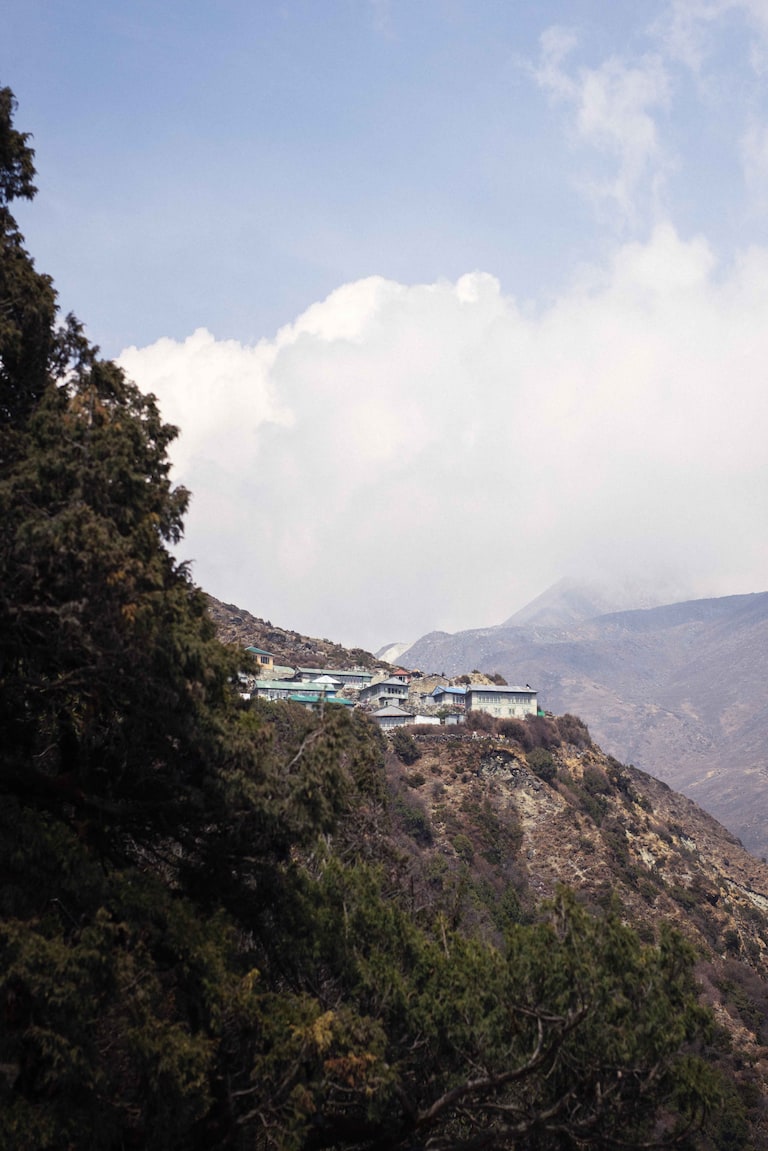
6/6
“I’m fascinated by the isolation and tranquility provided by remote places far from large towns and cities.”
The curiosities of our NNormal
experience in the Himalayas
Did you know that Sherpa is not a profession but a last name?
In fact, this Nepalese surname refers to one of the ethnic groups that inhabit the Himalayas, although due to their significant role as mountain guides, this word is commonly used incorrectly to refer to any type of guide. Other ethnic groups or castes that can be found here are, for example, the Thakali or the Jirel, although there are around 120 different castes.
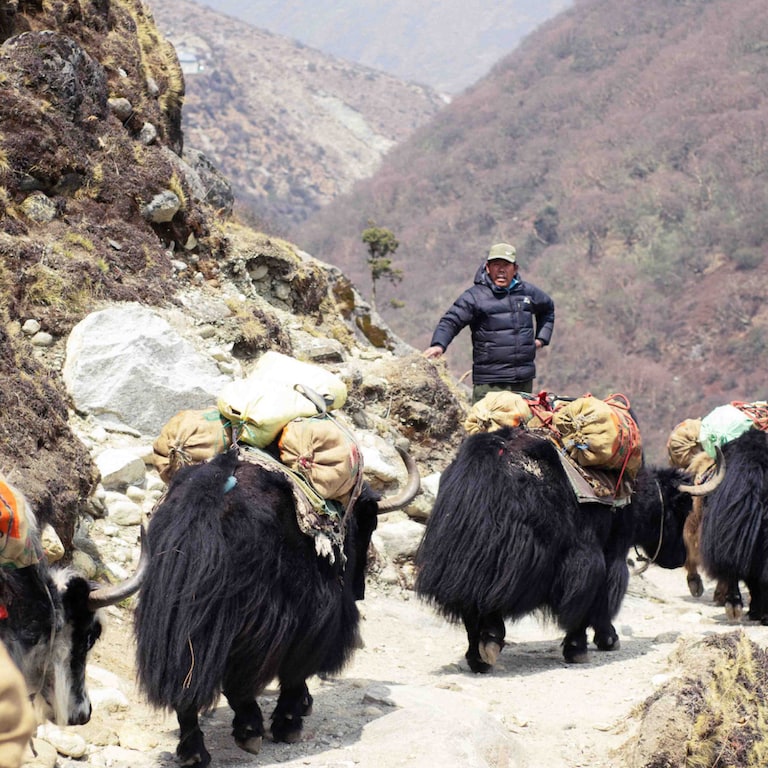
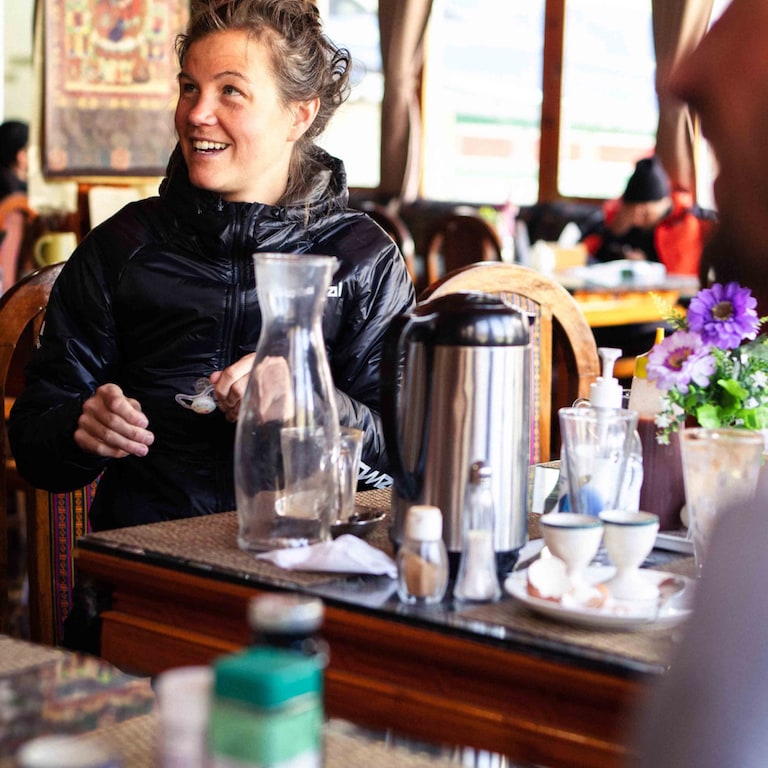
Cultural tips on a restaurant menu
Some habits, behaviors, or customs in Nepalese regions are completely new to those who visit the Himalayas as tourists. Perhaps for this reason, in some public places such as hotels or restaurants, locals take the opportunity to give some cultural tips to their visitors. This week, for example, we came across advice like this on a restaurant menu:
“Don’t forget to smile back and try to remember the Sherpa word for thank you, which is Thuche Thuche.”
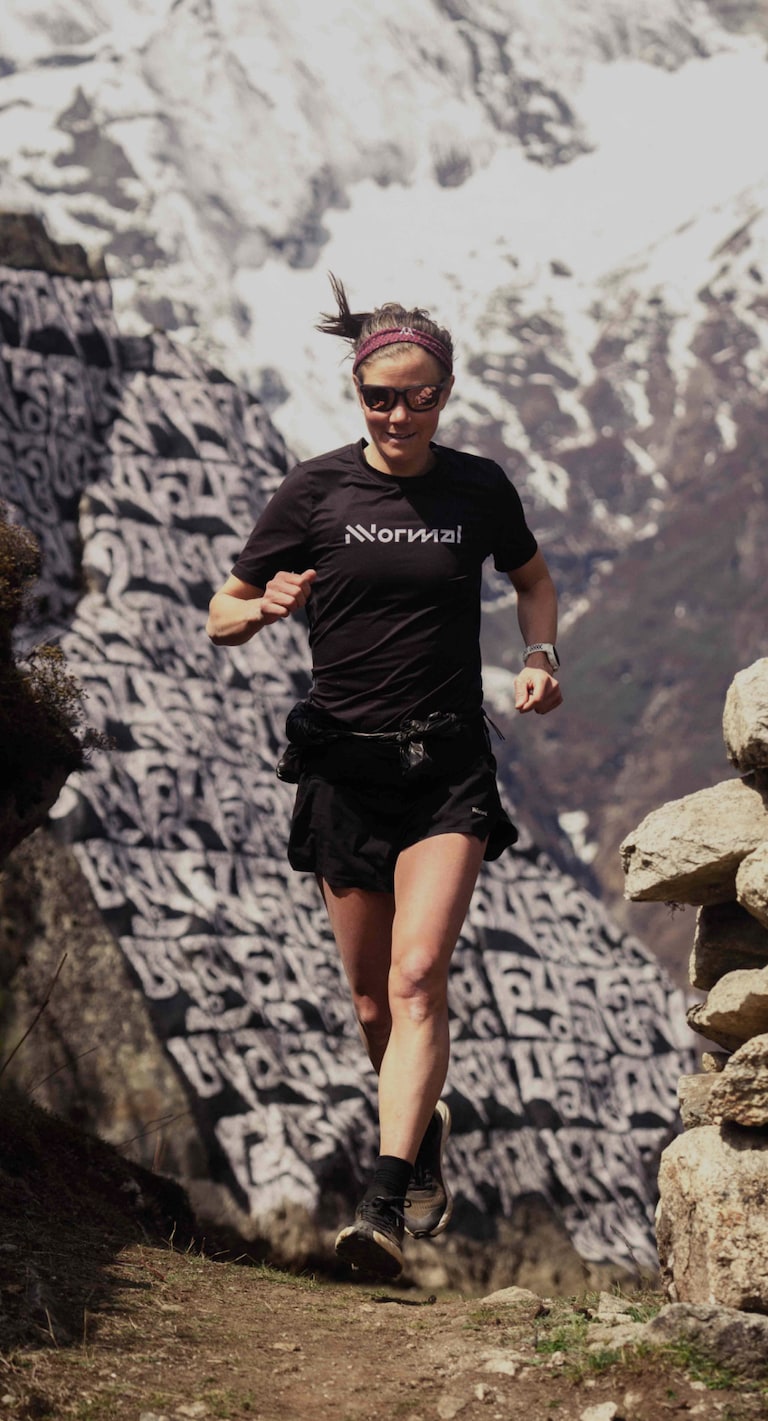
Kjerag
Our max-performance shoe
Discover Kjerag
Subscribe if you want to be the first to read the next chapter of this adventure!
Subscribe here
Read previous chapter
Photography: Julien Raison
Share with a friend
